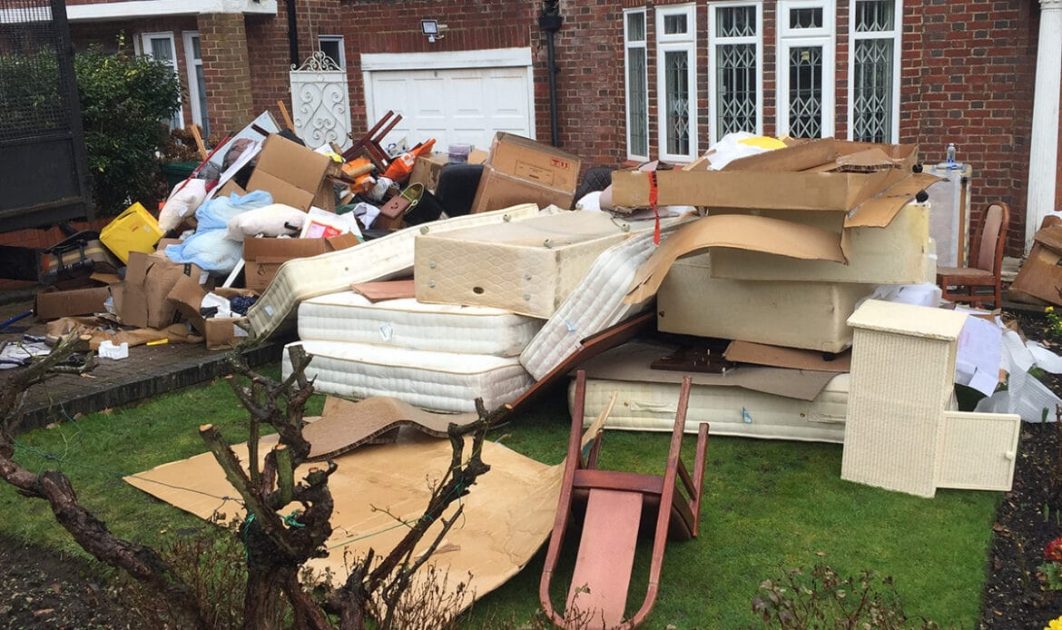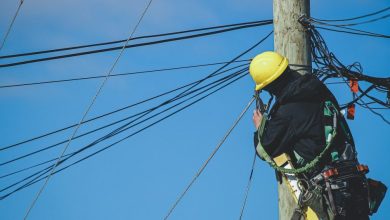Hard Waste Rubbish Removal: Managing Bulky Items With Efficiency And Sustainability

Managing hard waste rubbish removal involves the collection, disposal, and recycling of large and bulky items that cannot be accommodated in regular household or commercial waste collection services. These items often include furniture, appliances, electronics, and other oversized materials that require special handling and disposal methods. This article explores the importance of Hard Waste Rubbish Removal, challenges faced in handling bulky items, best practices for efficient disposal, recycling options, environmental considerations, and tips for choosing reliable removal services.
Understanding Hard Waste Rubbish Removal
Hard waste rubbish removal pertains to the disposal of large, bulky, and often heavy items that cannot be easily accommodated in standard waste bins or curbside collection services. These items typically include:
- Furniture: Sofas, mattresses, tables, chairs, and cabinets.
- Appliances: Refrigerators, washing machines, dryers, and dishwashers.
- Electronics: Televisions, computers, printers, and other electronic devices.
- Construction Debris: Timber, metal, concrete, tiles, and other renovation waste.
Importance Of Hard Waste Rubbish Removal
Proper management of hard waste rubbish removal is essential for several reasons:
- Environmental Impact: Prevents illegal dumping and promotes responsible disposal practices to minimize environmental pollution.
- Community Aesthetics: Enhances neighborhood cleanliness and improves the overall appearance of residential and commercial areas.
- Public Health and Safety: Reduces hazards associated with abandoned or improperly disposed bulky items, such as pest infestations and accidents.
Challenges In Hard Waste Rubbish Removal
Managing hard waste rubbish removal poses several challenges for individuals, households, and communities:
- Volume and Size: Bulky items take up significant space and require specialized vehicles and equipment for collection and transportation.
- Illegal Dumping: Improper disposal of hard waste can lead to environmental degradation, legal consequences, and community dissatisfaction.
- Regulatory Compliance: Adherence to local regulations and guidelines for the disposal of specific materials, such as hazardous waste and electronic waste (e-waste).
Best Practices For Efficient Hard Waste Rubbish Removal
Efficient management of hard waste rubbish removal involves strategic planning, responsible disposal methods, and community engagement:
Planning And Preparation
- Schedule Collection: Coordinate with local waste management authorities or private removal services to schedule pickup dates for hard waste items.
- Item Segregation: Separate items into categories (e.g., furniture, appliances, electronics) to facilitate recycling and proper disposal.
Recycling And Donation Opportunities
- Reuse and Repurpose: Donate gently used items to charities, thrift stores, or community organizations for reuse.
- Recycling Facilities: Utilize local recycling centers or specialized facilities to recycle metals, electronics, and other recyclable materials.
Professional Removal Services
- Licensed Providers: Choose reputable removal services with expertise in handling hard waste items and compliance with environmental regulations.
- Bulk Waste Collection: Opt for services that offer bulk waste collection capabilities and can handle large volumes of items efficiently.
Environmental Considerations
Promoting sustainability in hard waste rubbish removal involves:
- Recycling Initiatives: Maximizing recycling rates for metals, plastics, glass, and other recyclable materials found in hard waste.
- E-Waste Management: Ensuring proper disposal and recycling of electronic waste (e-waste) to recover valuable resources and prevent environmental contamination.
- Hazardous Materials: Safely disposing of hazardous substances, such as chemicals and paints, through licensed disposal facilities.
Recycling Options For Hard Waste
Metals
- Scrap Metal Recycling: Partner with scrap metal recyclers to collect and recycle ferrous (e.g., steel, iron) and non-ferrous (e.g., aluminum, copper) metals from hard waste items.
- Appliance Recycling: Separate appliances into components for recycling of metals and recovery of valuable materials (e.g., copper wiring, aluminum parts).
Electronics (E-Waste)
- E-Waste Collection: Participate in e-waste collection programs or utilize drop-off locations for recycling of computers, televisions, printers, and other electronic devices.
- Data Security: Ensure secure data destruction and disposal of electronic devices to protect sensitive information.
Furniture And Household Goods
- Donation Programs: Donate reusable furniture and household goods to charities or thrift stores to support community initiatives and reduce landfill waste.
- Upcycling Projects: Engage in upcycling or DIY projects to repurpose furniture and materials for new uses and extend their lifespan.
Choosing Reliable Hard Waste Removal Services
When selecting Hard Waste Rubbish Removal services, consider the following factors:
- Service Expertise: Choose providers with experience in handling bulky items, including furniture, appliances, and electronics.
- Environmental Practices: Verify that the service provider adheres to environmental regulations and promotes recycling and sustainable waste management practices.
- Customer Reviews: Check customer testimonials and reviews to gauge service reliability, efficiency, and customer satisfaction.
- Cost and Transparency: Request cost estimates and ensure transparency regarding pricing, fees, and disposal processes.
Case Studies: Examples Of Effective Hard Waste Rubbish Removal
Residential Case Study
- Situation: Homeowners renovating their property and needing to dispose of old furniture, appliances, and construction debris.
- Service Provider: Engaged a local rubbish removal company offering comprehensive hard waste collection and recycling services.
- Outcome: Efficient removal of bulky items, recycling of materials, and clean-up of the renovation area.
Community Cleanup Initiative
- Situation: Community organization organizing a neighborhood cleanup event to remove large and abandoned items.
- Service Provider: Partnered with municipal waste management authorities for bulk waste collection and disposal.
- Outcome: Enhanced community cleanliness, reduction of illegal dumping, and promotion of environmental stewardship.
Conclusion
Effective management of hard waste rubbish removal involves careful planning, responsible disposal practices, and engagement with professional removal services. By prioritizing recycling, donation opportunities, and compliance with environmental regulations, individuals, households, and communities can minimize landfill waste and promote sustainability. Choosing reliable removal services ensures efficient collection, transportation, and disposal of bulky items while enhancing neighborhood aesthetics and supporting environmental stewardship efforts. As the demand for responsible waste management continues to grow, leveraging best practices in hard waste rubbish removal contributes to cleaner, safer, and more sustainable communities for future generations.




